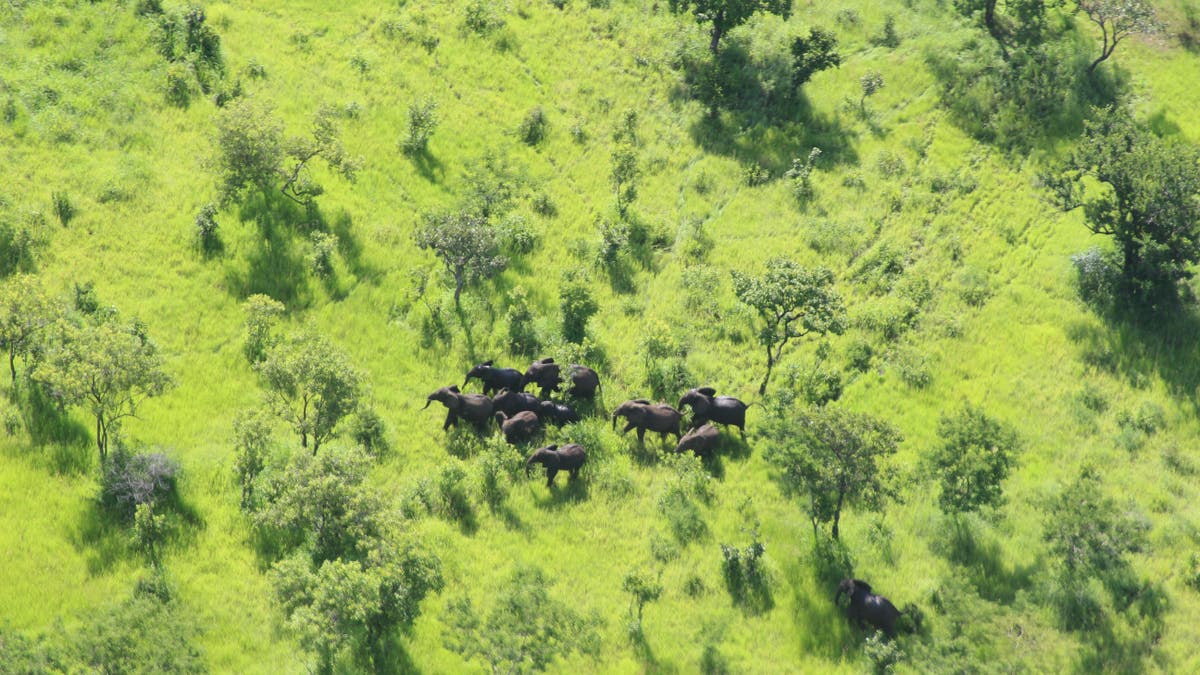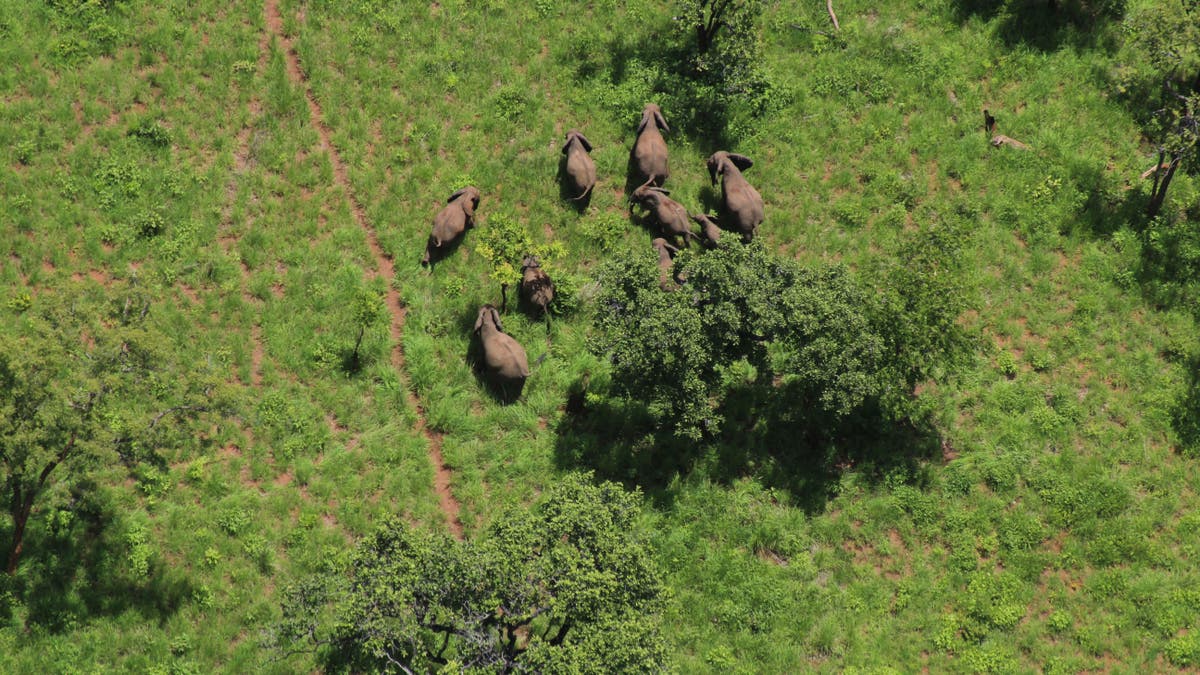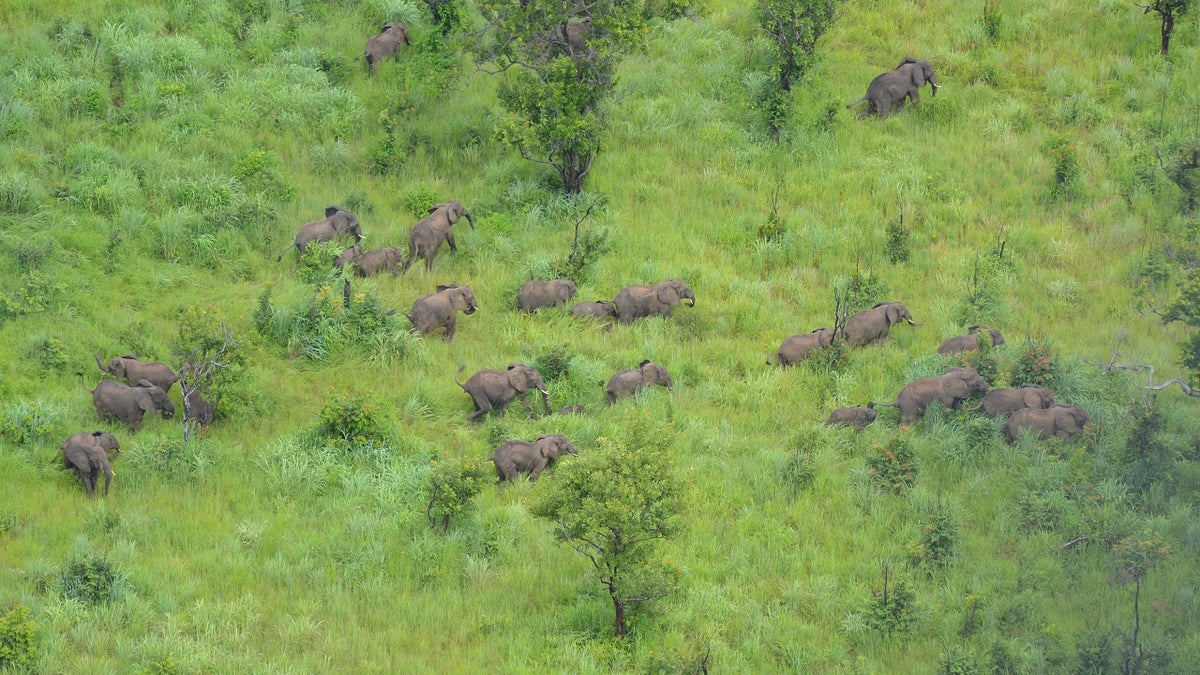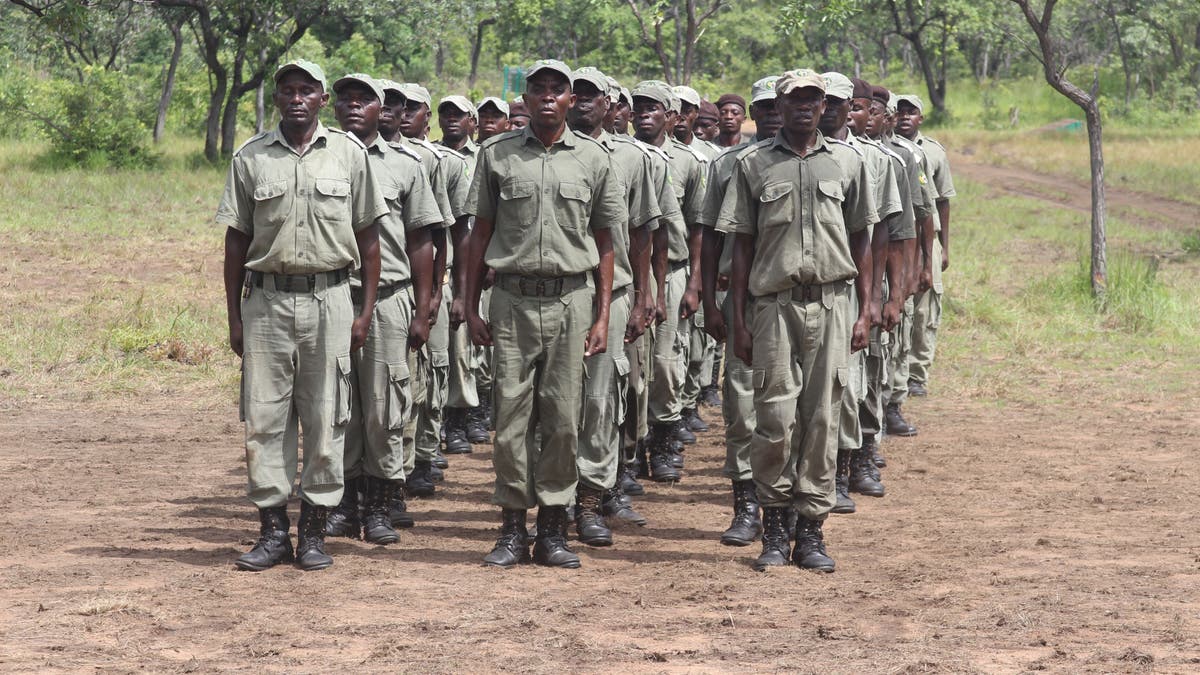Fox News Flash top headlines for June 18
Fox News Flash top headlines for June 18 are here. Check out what's clicking on Foxnews.com
A U.S. wildlife support group working with the Mozambican government has become arguably the first in Africa to successfully clamp down on elephant poaching, while other southern African countries are struggling to cope with culling and hunting of wild animals.
The New York-based Wildlife Conservation Society (WCS) has announced that not a single elephant has been poached in the last year in Mozambique’s Niassa Reserve.
Only eight years ago, 11,000 elephants roamed the massive park – at 16,000 square miles it’s larger than Switzerland.
But organized gangs of poachers cut down close to 7,500 elephants in the park, until WCS stepped in. Now the population is estimated at 4,000 and increasing.
ZIMBABWE EARNS NEARLY $3M SELLING ELEPHANTS TO CHINA, DUBAI, OFFICIAL SAYS

The New York-based Wildlife Conservation Society (WCS) has announced that not a single elephant has been poached in the last year in Mozambique’s Niassa Reserve. (WCS)
Working with Mozambique, an elite and armed rapid deployment force has been deployed.
“It is critical to have constant monitoring and rapid response from the air,” Joe Walston, Senior Vice-President for Global Programmes for WCS told Fox News. WCS have provided an aircraft and two helicopters to assist ground forces.
Helping keep the poachers at bay is the tough reputation of those protecting the elephants, and the introduction of stiff sentences - being caught with a firearm in the park can lead to a jail term of up to 16 years.
The work by WCS and Mozambique is bucking the trend elsewhere in Africa, where the population of elephants across the continent has dropped by a fifth in the past decade. The International Union for Conservation of Nature reports that more than 110,000 of the animals have been slaughtered, mostly for their ivory tusks.
BOTSWANA GOVERNMENT ENDS BAN ON ELEPHANT HUNTING, CITING CONFLICTS WITH HUMANS

The work by WCS and Mozambique is bucking the trend elsewhere in Africa, where the population of elephants across the continent has dropped by a fifth in the past decade. (WCS)
That’s why it’s extremely significant that Walston anticipates taking Niassa’s elephant numbers in the opposite direction: “Now is the time we will hopefully see the recovery of the elephant in Niassa, we are looking forward to repopulating here”.
Already the park’s elephant population has increased by approximately 250 in the past two years.
Elsewhere in southern Africa, Botswana has been criticized by conservation groups after lifting the ban on the hunting of elephants. The country has the largest population of elephants in the world – at least 130,000.

Already the park’s elephant population has increased by approximately 250 in the past two years. (WCS)
The newly-elected government has decided to allow controversial trophy hunting, for the purposes of culling elephants.
The environment ministry claims elephants, which can weigh up to six tons, have been coming into direct conflict with farmers, when the animals try to feed off the farmers’ crops.
Some experts are concerned that hunting will make the unpredictable elephant more wild and dangerous.
“Hunting causes extreme stress to elephants, which are intelligent, thinking communicating animals," claims Dr. Paula Kahumbu, Chief Executive Officer of Kenyan-based pressure group WildlifeDirect.
“The elephants begin to associate humans with violence," Kahumbu said. “And they retaliate, hence the large number of human fatalities”.

Helping keep the poachers at bay is the tough reputation of those protecting the elephants, and the introduction of stiff sentences - being caught with a firearm in the park can lead to a jail term of up to 16 years. (WCS)
In bordering Namibia, which has been dealing with its worst drought for 90 years, the government has advertised that over 1,000 wild animals, including elephant, buffalo and giraffe currently in national parks are to be put up for auction and likely exported.
BRITISH SOLDIER IN MALAWI ON ANTI-POACHING OPERATION KILLED BY ELEPHANT
Namibia claims the sell-off will save animals’ lives, because there is so little good grazing left in the parks. Last year, the government claimed over 65,000 animals died because of the drought.
In Zimbabwe, almost 100 elephants have been sold to China and Dubai, reportedly because of a growing elephant population. Zimbabwe is also concerned about conflict between elephants and humans, with officials citing 200 people who have been killed by elephants in the past five years.
In South Africa, so-called canned lion farming and hunting continues to come under fire. Between 8,000 and 12,000 captive lions are being bred for the bullet, claims Pippa Hankinson, director of The Blood Lions campaign.
The lions are often kept in cramped enclosures – and either positioned in a trapped situation so they can be shot by trophy hunters, or killed to be sold to Asian buyers who believe their bones have medicinal qualities.
CLICK HERE FOR THE FOX NEWS APP
Hankinson was so appalled by the practice that she produced an award-winning documentary “Blood Lions”. She told Fox News that the industry “has no conservation value, is tarnishing South Africa’s conservation reputation and tourism image, and that efforts should be made to shut the industry down.”








































